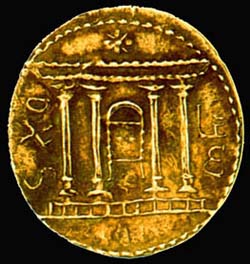Sage sources argue among themselves about the failure of Ben Kusva's rebellion. The Jerusalem Talmud goes on to accuse the leader of the rebellion of arrogance and condescension towards God.
Dr. Yehiam Sorek

In this context, we can also point to his reaction towards his uncle, Rabbi Elazar Al-Modai, who was suspected, maliciously of course, of plotting to hand the Jews over to Hadrian. Ben Kusva without hesitation kicked him and was killed/murdered on the spot. The source's response was not long in coming: "Immediately a voice came out and said: O shepherd of the idol, leave the flock, a sword on his arm and on his right eye, his arm will dry up and his right eye will turn black. You killed Rabbi Elazar Modai, the arm of all Israel and their right eye. Therefore the arm of that man withered withered and his right eye turned black. Beitar was immediately captured and Ben Khoziba was killed" (Midrash Icha, Mahd. Buber, 101).
Not once or twice is the influence of the Greek world and its culture on the Jewish one emphasized (it is generally recommended to refer to this matter in Yohanan Levy's important book, Worlds Meet, Mossad Bialik, Jerusalem, XNUMX), and which is why we will use Herodotus here as an aid. Hella emphasizes the will of the gods that controls everything, in relation to the war that the Persians forbade the Greeks at the beginning of the fifth century BC. Human history and human life in general, according to him, is nothing but the history of sin and the inevitable punishment imposed by the gods. Man's greatest sin, for which he deserves the death penalty, is hubris, the criminal arrogance.
And now we will close the circle: according to one of the midrashic traditions, Ben Kusva was not killed except by the hands of Heaven. They brought the head of Ben Kusava before Hadrian, and he asked: Who did they kill? One Kuthi answered him: I killed him. Hadrian said to him: Show me his corpse. Show him, a snake was found wrapped around him. Hadrian said: Had it not been for God who killed him, who could have killed him?!
We will therefore connect the influence of the Greek culture and its tradition on the Jewish one, to the arrogance of Ben Khosva towards God and his punishment from the hands of Heaven, and we will find an interesting comment regarding the Sage's reference to the rebellion and the rebel, as they say, among themselves: in such circumstances, he deserved it!
